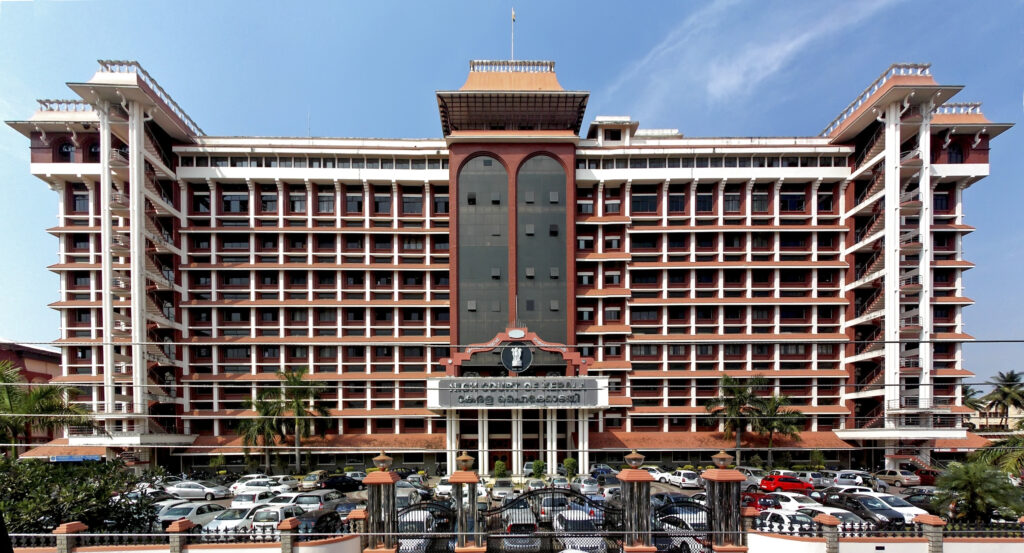Rehan Khan
A Bench of the Kerala High Court, led by Justice V.G. Arun, highlighted the growing importance of technology in judicial processes, particularly for facilitating virtual cross-examinations. In the case of Alex C. Joseph v. State of Kerala, the High Court overturned a Trial Court’s decision denying the petitioner’s counsel permission to cross-examine prosecution witnesses via video conferencing, underlining the necessity of adapting to technological advancements to ensure justice.
The petitioner, Alex C. Joseph, a 60-year-old resident of New Delhi and native of Thiruvalla, is the accused in the case pending before the Special Judge, CBI, Thiruvananthapuram. Joseph sought permission for his senior counsel to cross-examine witnesses remotely due to health issues and the logistical difficulty of traveling to Thiruvananthapuram.
The Trial Court rejected the request, prompting Joseph to seek relief from the Kerala High Court. Opposing the plea, the CBI, represented by Special Public Prosecutor Sreelal N. Warrier, argued that physical presence in court during cross-examinations is crucial for maintaining procedural integrity.
At the heart of the matter was the interpretation of the Electronic Video Linkage Rules for Courts (Kerala), 2021. The petitioner’s counsel argued that:
- Rule 3 of the 2021 Rules explicitly allows video conferencing at all stages of judicial proceedings.
- Definitions such as “Remote User,” “Electronic Video Linkage,” and “Live Link” substantiate the feasibility of virtual participation by advocates.
- The Supreme Court’s ruling in State of Maharashtra v. Praful B. Desai [(2003) 4 SCC 601] affirms that evidence recorded via video conferencing satisfies the requirement of being “in the presence of the accused.”
The prosecution countered that the rules did not explicitly permit remote cross-examinations and emphasized the necessity of having counsel physically present to assist the court during such proceedings.
Delivering a forward-thinking judgment, Justice V.G. Arun stressed the pivotal role of technology in making judicial processes more accessible and efficient. While acknowledging the lack of explicit provisions for remote cross-examinations in the 2021 Rules, the court observed:
“The objective of the Electronic Video Linkage Rules is to enhance accessibility and expedite proceedings. Imposing restrictions on hybrid hearings or virtual participation discourages the use of technology, hindering access to justice and perpetuating the notion that courts are reluctant to embrace innovation.”
The court further referenced the Supreme Court’s ruling in State of Maharashtra v. Praful B. Desai, affirming that virtual cross-examinations comply with the requirement of recording evidence “in the presence of the accused” under Section 273 of the Cr.P.C. Additionally, the judgment cited Sarvesh Mathur v. Registrar General, Punjab and Haryana High Court, where the Supreme Court underscored the necessity of integrating technology in legal proceedings.
The Court decided to quash the Trial Court’s order, the High Court permitted Joseph’s counsel to conduct cross-examinations via video conferencing. Justice Arun laid down detailed guidelines to ensure procedural fairness:
- A competent advocate familiar with the case must be physically present in court during the virtual cross-examination.
- Adequate technological infrastructure must be available at the remote location to facilitate seamless communication.
The court clarified that while granting virtual cross-examinations is discretionary, it can be permitted when justified by valid reasons. Furthermore, Justice Arun directed the Registrar General to forward the judgment to the Rules Committee, recommending amendments to the 2021 Rules to explicitly include provisions for remote cross-examinations.
Case Title: Alex C. Joseph v. State of Kerala
Case Number: CRL.MC NO. 10447 OF 2024
Bench: Justice V.G. Arun

